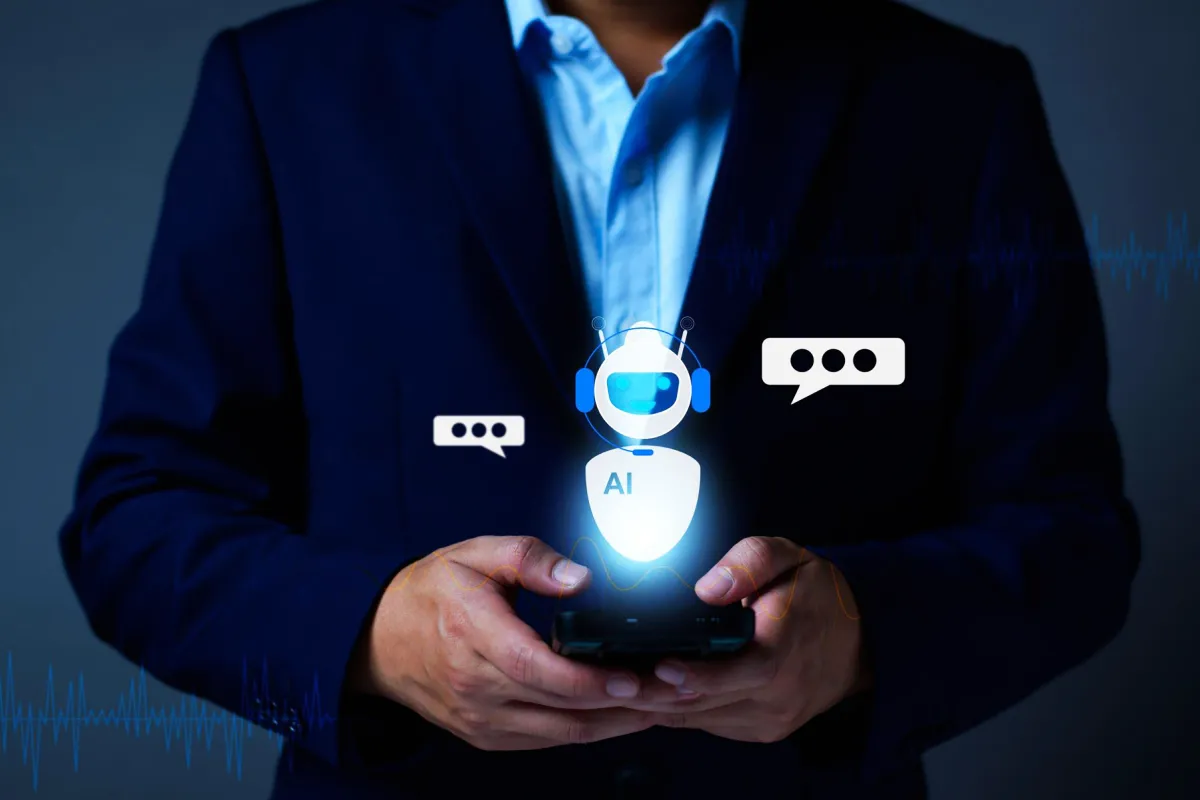Pros and Cons of AI Chatbots for Businesses
Introduction
AI chatbots are transforming the way companies build relationships with clients, ensuring smooth operations and maintaining productivity. The usage of AI chatbots has become common in every industry, whether it be the e-commerce domain or healthcare sectors, the use of AI chatbots has become the trend. The reason is that chatbots provide a prompt response to users 24/7.
However, drawbacks include a limited degree of personalization owing to the nature of the system, plus the likelihood of a security threat. This blog thus explores the pros and cons of AI chatbots for businesses, with a glimpse into their future market.
5 Pros of AI Chatbots for Businesses
1. 24/7 Customer Support
AI chatbots have one major benefit, which is their ability to offer round-the-clock customer service. Unlike human agents, chatbots do not have a limited number of working hours, which is why they can be accessed any time to provide answers, manage customer complaints, give product details, etc.
Such nonstop service will keep the customer satisfied, particularly in the case of businesses with a global reach that has to deal with clients in different time zones.
2. Cost-Effective Solution
Implementing an AI chatbot such as StoreAgent Chat in businesses can reduce the cost of business operations. Where human customer service agents need training, salaries, and workspace, the AI chatbot development services can cut out all the expenses and operate with minimal ongoing expenses after initial setup.
A single chatbot can handle thousands of queries, replacing the need of large human support. Allowing businesses to reach a larger audience without increasing their workforce or expenses.
3. Scalability and Efficiency
During high-demand periods, such as holiday sales or product launches, AI chatbots help businesses with customer support. During such times, a large number of requisitions is bound to flow in, and AI chatbots attend to these requests without any additional resources.
This efficiency ensures the companies meet the demand spikes, making it ideal for businesses with seasonal workloads.
4. Consistent Service Quality
Human customer service representatives are affected by various factors, such as their knowledge, mood, or manner of speaking, which in turn may result in different customer experiences, whereas AI chatbots for businesses deliver standard replies based on programmed knowledge bases.
Such consistency helps minimize the chances of errors or misinformation, maintaining the brand image of their company.
5. Data Collection
AI chatbots are not just conversational tools; they help businesses collect client data. While having a conversation with clients, it can gather information such as name, email, contact number, and more. This data can be easily accessed by integrating a chatbot with CRM.
Additionally, the chatbot conversations also help companies to improve their services and products.
While these benefits make chatbots attractive, businesses must also consider the challenges that come with them.
5 Cons of AI Chatbots for Businesses
1. Lack of Human Touch
Despite their efficiency, the conversation with a chatbot lacks the emotional tone, and it does not always understand your query.
In case of complex issues, the customer may find the response robotic and unsatisfactory. This results in a frustrated customer and loss of trust.
2. Require Implementation Time
There are no negatives associated with this, but it is worth noting that installing an AI chatbot never happens superfast. Indeed, the businesses need time to plan everything, design conversation flows, train the AI with the most relevant data, and finally integrate it with existing systems such as CRM or payment platforms.
3. Need Regular Maintenance
AI chatbots for businesses are not a single-time investment. To stay relevant, it demands regular updates and maintenance. Over a period of time, the regulation of industries, customer preference, and trends are changing.
The chatbot needs to be updated with up-to-date and relevant information in order to answer the questions and queries of the customers.
4. Limited Responses
AI Chatbots are rule-based or pattern recognition systems which can only think within the limits of their programming or the given data. Unlike human agents who are capable of mood adjustment, spontaneous problem-solving, and showing sympathy with atypical cases, chatbots give standard replies.
5. Security and Privacy Concerns
Chatbots hold critical and sensitive information such as details of payments, address, or health data. Any sort of leakage or misuse of such information from the chatbot end can double the risks of cyberattacks on the business and also lead to legal battles. Hence, companies must place strong security mechanisms so that customers may feel safe and the company remains compliant with data protection laws.
Future of AI Chatbots for Businesses
The companies are adopting automation in their processes to improve efficiency and customer engagement; the future of AI chatbots is bright. The natural language processing and machine learning advancements make chatbots to grasp context better, and thus they are capable of giving more tailored interactions not only in retail but also in healthcare, finance, and other sectors.
Their role in communication and user experience will grow significantly as businesses put chatbots into omnichannel platforms and voice assistants. They will be able to predict needs, support customers before being asked, and thus they will be close to their customers at all times; therefore, the future chatbot technology will not be merely answering queries, but it will be an essential tool for modern business communication.
Conclusion
AI chatbots for businesses are extremely useful in companies as they bring a range of benefits, including cost reduction, 24/7 availability, a more consistent quality of service, and even insights based on data analysis. Meanwhile, there are some disadvantages of AI chatbots in businesses, such as issues of security, limited responses, and the need for constant upkeep, which are some of the problems that these technologies face.
To have the right balance, businesses need to integrate automation with the human touch. Partnering with a skilled AI chatbot development company can help organizations design reliable, secure, and scalable solutions that enhance customer engagement and support future business growth.

Leave a Reply